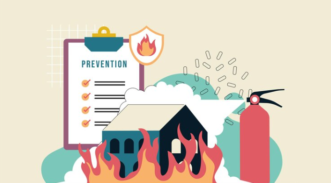Car crashes aren’t just bad luck. They’re expensive. They follow you. They sit on your record, waiting to remind you that one bad day behind the wheel means years of paying more.
For young investors, insurance premiums are like stock prices. They go up when things go wrong. They go down when you prove you’re reliable. Risk, volatility, patterns—same game, different numbers. Here’s how it all works.
What Are Insurance Premiums?
Think of insurance like a subscription service, but worse. Netflix? You pay, you watch, no surprises. Insurance? You pay, and maybe—if your life falls apart—the company helps you out. And even then, they’re watching. Judging. Adjusting your price based on how risky they think you are.
What decides the cost?
- Your driving history. How many mistakes you’ve made.
- Your car. Fast? Flashy? Expensive to fix? Bad news.
- How much coverage you want. More safety nets, more dollars.
And if you crash? You’ve just told the insurance company, Hey, I’m not as safe as I seemed. Now they charge you more.
How Crashes Affect Insurance Premiums
Wreck your car, wreck your premium. That’s the rule.
Here’s how it plays out:
- How bad was the crash?
Fender bender? A little dent? The insurance company grumbles but lets it slide with a small increase. But if the crash is serious? If someone gets hurt? If your car looks like modern art after? Your premium could jump 20% to 30%. Like a stock tanking after bad news. - Whose fault was it?
If you caused the crash, your insurance company won’t forget. They’ll jack up your rates—sometimes by 45%—because now they know. You’re a risk. If it wasn’t your fault, the increase might be smaller, maybe 10%. But you’ll still pay. Because fair doesn’t exist in insurance. - Your insurance company’s rules.
Some companies pretend to be nice. “Accident forgiveness.” The idea is, your first crash won’t raise your premium. But only if you’ve been a perfect driver before. And only if you’ve been with them long enough. Even then, not all companies do this. Most just charge you more.
The Role of Points on Your Driving Record
Insurance companies love points. Not the good kind. Every time you mess up—speeding, reckless driving, running a red light, crashing—you get points on your driving record. More points mean you look like a bigger risk. Bigger risk means higher insurance premiums.
Here’s how points usually stack up:
- Minor violations: 2-3 points. A little mistake. A little extra on your bill.
- Serious crashes: More points. Bigger bills. More regret.
Insurance companies check your driving record like a stock analyst checks market trends. They see points, they raise your price. Every mistake costs you. Every bad decision follows you.
How Long Do Accidents Affect Premiums?
Crashes don’t vanish. They stick to you. A reminder. A stain. A three-to-five-year punishment for a single bad day.
It’s like buying a bad stock at the worst possible time. A mistake that costs you, month after month, every time your insurance bill arrives. You don’t get to forget. The insurance company won’t let you.
Some crashes disappear after three years. Some linger for five. Either way, they drag your premium up, and there’s nothing you can do but wait.
Strategies to Mitigate Rate Increases
If you’ve crashed, don’t panic. You can’t undo the past, but you can keep your premiums from going through the roof. Play it smart. Work the system. Here’s how:
- Accident Forgiveness Programs: Some insurance companies pretend to be nice. “First accident? We’ll look the other way.” But only if you qualify. Only if you’ve been clean for years. It’s a lottery, and not everyone wins.
- Defensive Driving Courses: The insurance company thinks you’re a risk. Prove them wrong. Take a course. Show them you’re trying. They might shave a little off your premium, maybe even remove points from your record.
- Shop Around: Every insurance company plays by its own rules. Some will punish you more than others. Some will cut you a break. After a crash, compare quotes. Find the company that doesn’t hate you too much.
- Adjust Your Coverage: Raise your deductible, lower your premium. It’s a gamble. You’ll pay less now, but if you crash again? You’ll pay big.
- Improve Your Credit Score: Doesn’t seem fair, does it? Crash a car, and suddenly your credit score matters? But insurance companies love numbers. A better credit score makes you look responsible. Even if you’re not.
- Drive Safely: The only sure way to keep your premiums low? Don’t crash again. Stay invisible. Stay boring. Stay off the insurance company’s radar.
Car crashes don’t just mess up your car. They mess up your finances. They stick with you, follow you, cost you. But like any bad investment, you can recover. Drive safe. Pay attention. And remember—insurance companies never forget, but they do move on. Eventually.




